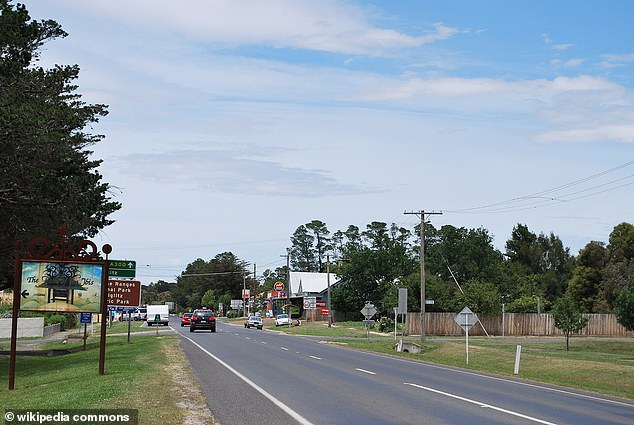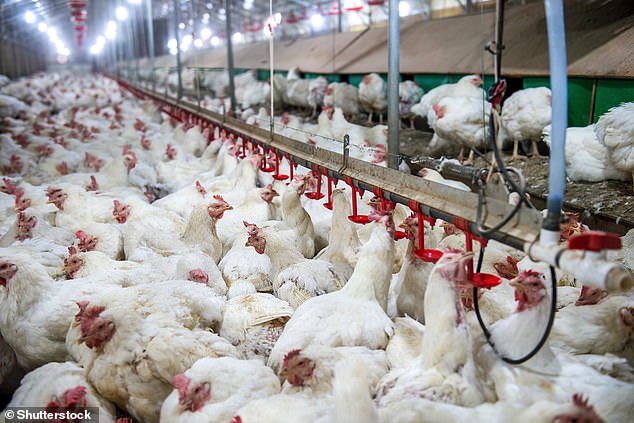After Australia recorded its first human case of a strain of bird flu that has been spreading around the world, Australians are being warned about the symptoms to watch out for.
On Wednesday, a child returning from India was confirmed to be Australia’s first case of bird flu A(H5N1), which has caused widespread bird deaths around the world.
The boy experienced a “severe infection” after contracting the strain in March, but has since made a full recovery, Victoria’s chief health officer said.
“This is the first human case of H5N1 bird flu in Australia,” Dr Clare Looker said.
Symptoms of H5N1 infection may include fever, cough, headache, muscle pain, and respiratory symptoms.
After Australia recorded its first human case of a strain of bird flu (pictured) that has been spreading around the world, Australians are being warned about the symptoms to watch out for.

Symptoms of H5N1 infection may include fever, cough, headache, muscle pain and respiratory symptoms (file image)
‘The avian influenza virus was detected through additional testing of positive influenza samples being carried out to detect new or concerning influenza virus strains, as part of Victoria’s enhanced surveillance system.
“Contact tracing has not identified any other cases of avian flu related to this case.”
Dr Looker said the chance of additional human cases was low as bird flu does not spread easily between people.
The revelation came on the same day agricultural authorities revealed that a different strain of bird flu had been detected at an egg farm in regional Victoria.
Agriculture Victoria ordered urgent testing after bird flu was detected on a farm near Meredith, about 40 kilometers northwest of Geelong, following several poultry deaths.
Veterinary director Graeme Cooke said the outbreak probably involved the H7N7 strain, different from the highly pathogenic H5N1 variant.
“There is a type of virus that is causing great concern in the US and other parts of the world and it has behaved in an unusual way, infecting dairy cattle and some other marine mammals,” Dr Cooke told the ABC’s Country Hour.
‘This is not the tension we are dealing with. This is a strain that has occurred before in Australia. It’s probably not new.

Agriculture Victoria on Wednesday confirmed the presence of the H7N7 strain after several poultry deaths at an egg farm near Meredith (pictured), about 40 kilometers northwest of Geelong.
H7N7 was the most common strain of bird flu in Australia, Dr Cooke said.
One of the strains in Australia’s last bird flu outbreak in 2020, which affected one in three egg farms in Victoria, was an H7 strain and testing is underway to determine if it is the same.
“Agriculture Victoria is responding with staff on the ground supporting the business with further laboratory investigations as required,” Dr Cooke said.
The property has been quarantined with a 5km radius and affected animals will be “depopulated”.
Samples of the virus were sent to the Australian Center for Disease Preparedness in Geelong for testing.
Avian influenza is a highly contagious viral infection that can cause severe symptoms and sudden death in domestic poultry, wiping out entire populations.
Wild birds are the natural host of the disease and it can be spread through close contact or contaminated environments.

All bird species are believed to be susceptible to the deadly H5N1, which has also been detected in more than 50 mammal species, including humans. Chickens on a factory farm
All bird species are believed to be susceptible to the deadly H5N1, which has also been detected in more than 50 mammal species, including humans.
Infected people have seen mild symptoms or have been asymptomatic, but some experience severe illness.
Authorities have assured the public that eggs and poultry products in supermarkets do not pose a risk and are safe to consume.
Bird owners have been reminded to keep enclosures clean, quarantine new birds before integrating them into existing flocks, ensure footwear is clean and always wash hands before and after handling birds or eggs.



